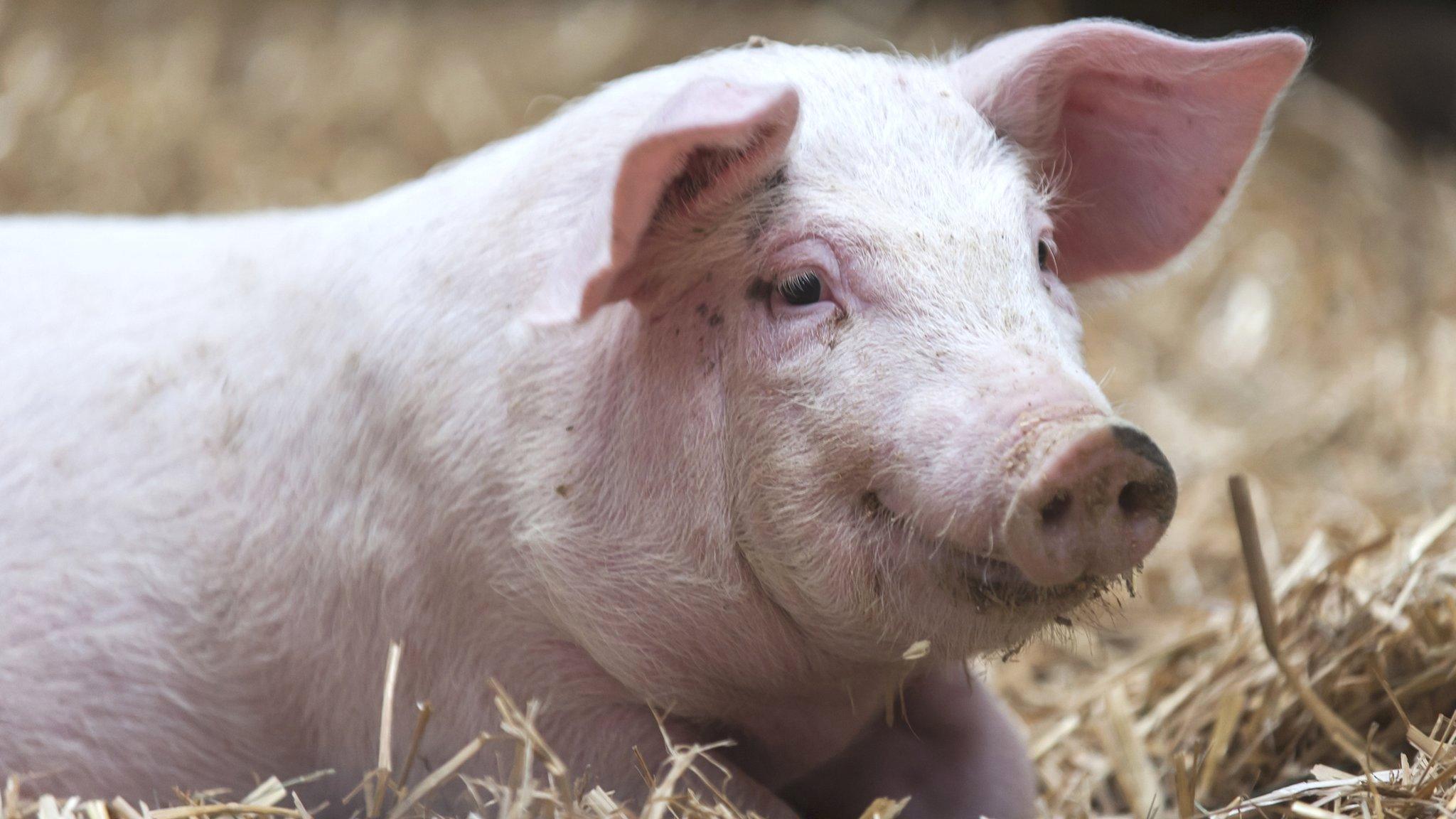Gas price crisis: Food firms face huge price rise for carbon dioxide
- Published
- comments
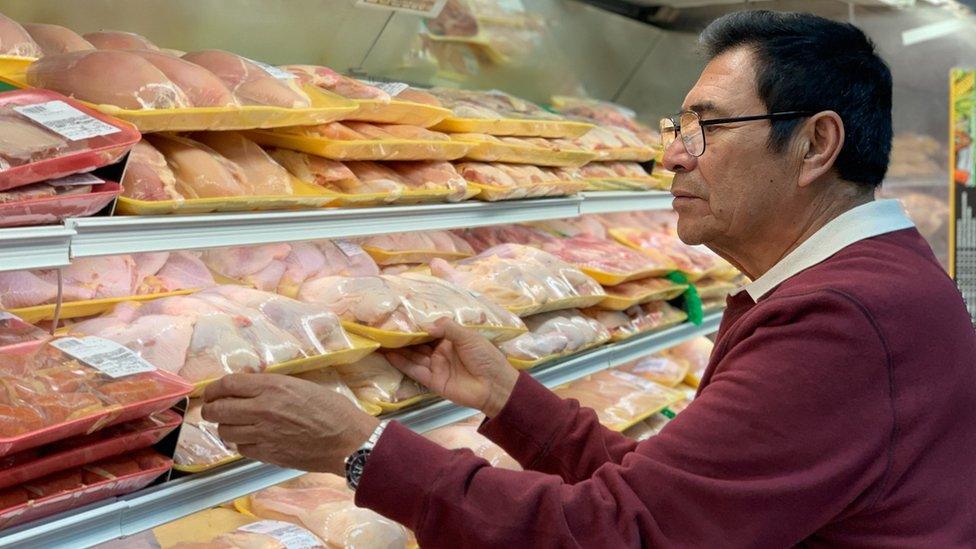
The British food industry will be forced to pay five times more for carbon dioxide as part of a government deal with a US company to restart production in the UK.
Environment Secretary George Eustice said carbon dioxide prices would rise from £200 per tonne to £1,000.
The government has agreed to pay out tens of millions of pounds to CF Industries to reopen a plant in the UK.
The closure had raised fears over food supplies and the nuclear industry.
US-owned CF Industries recently shut two UK sites that produce 60% of the country's commercial carbon dioxide supplies, because of a sharp rise in gas prices.
Ros Atkins on... the UK's rising energy bills
Farms, food producers and supermarkets have warned that a shortage of carbon dioxide will lead to significant disruption to the manufacture and supply of fresh produce.
The Times also reported , externalthat ministers were concerned that the UK might have to close its six advanced gas-cooled nuclear reactors, which also use CO2.
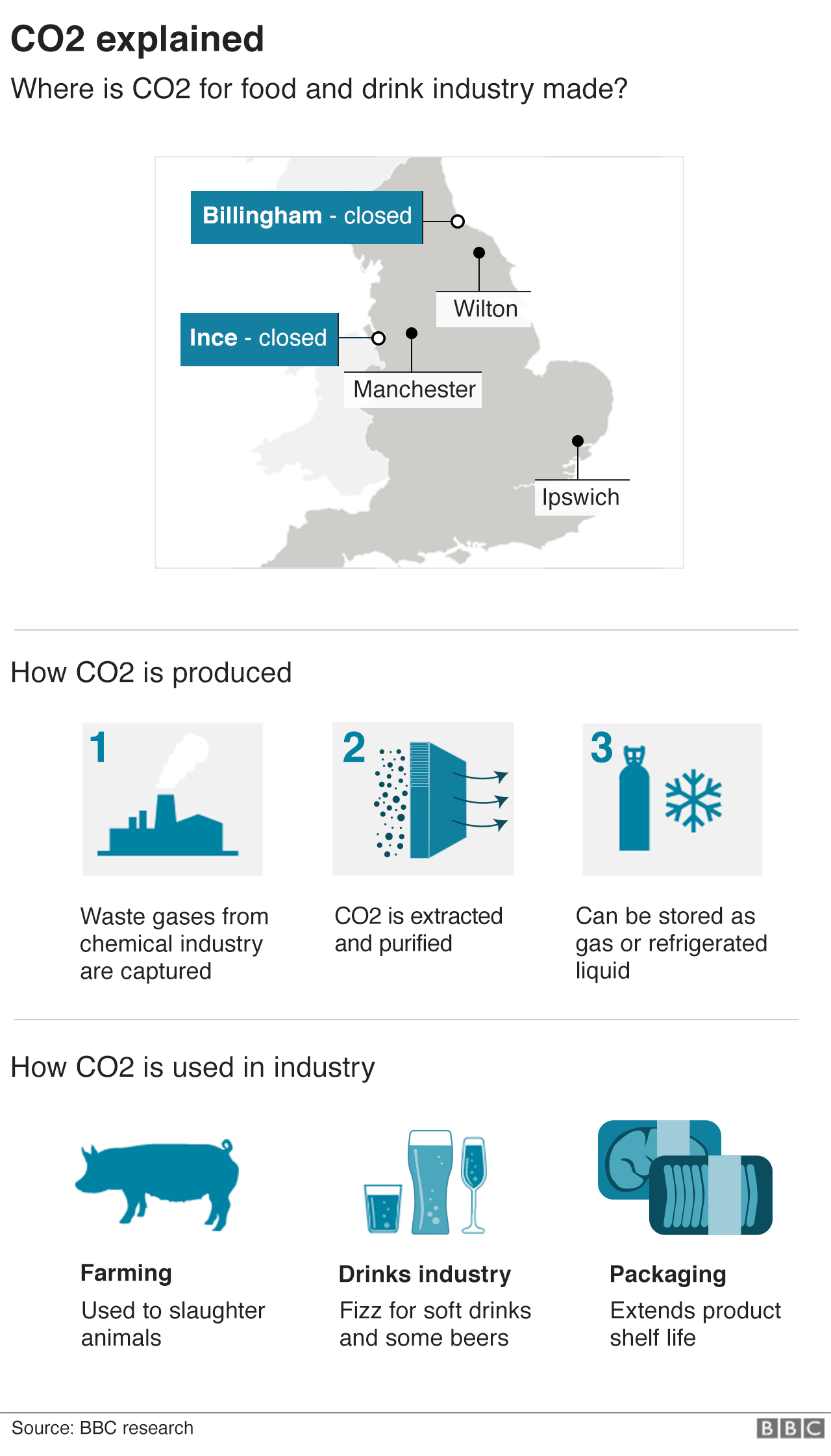
The government announced late on Tuesday night that it would meet the full operating costs to run CF Industries' Billingham plant in Teesside for three weeks. The costs are expected to be in the "low tens of millions" and will be below £50m.
Mr Eustice said that the deal with CF Industries "will be not a loan, it will be a payment to underwrite some of their fixed costs".
At the end of the three-week period, it is hoped that the price of carbon dioxide will have risen sufficiently to make it economically viable for CF Industries to keep production running.
Mr Eustice said the food industry would have to accept "a big, sharp rise" carbon dioxide prices from £200 to £1,000 a tonne.
"The critical thing was to get the production up and running expeditiously. That's why we've needed this government intervention," he said.
"But we've had meetings with the food industry. They all recognise that the price of carbon dioxide is going to increase substantially and when that price increases, then the market signal will be then for these plants to continue producing."
Mr Eustice insisted that the rise in cost would not have a "significant impact" on food prices.
He said that while food prices were increasing "due to global commodity prices, oil prices and also other factors such as labour shortages", carbon dioxide was "a tiny proportion" of the industry's overall costs.
CF Industries had halted two of its fertiliser factories - which produce carbon dioxide as a by-product - because of gas prices.
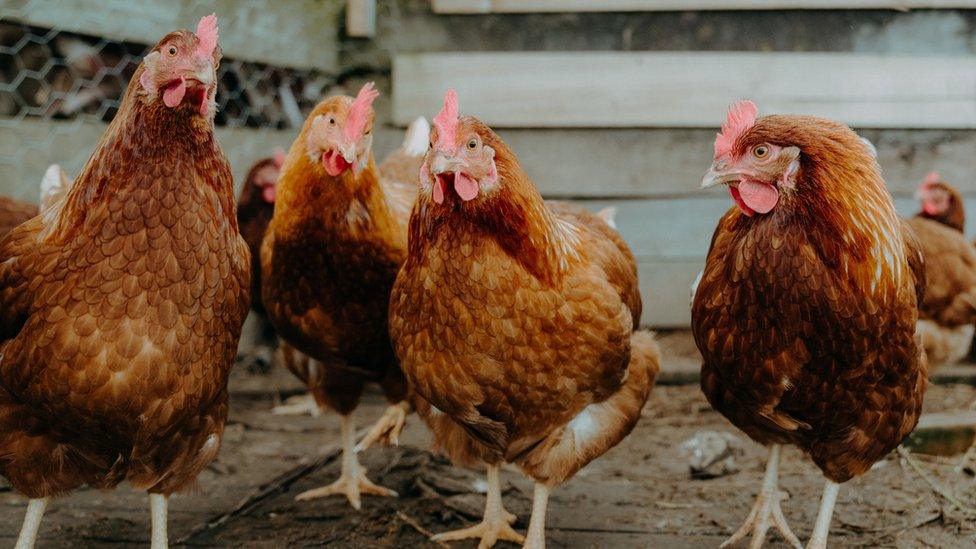
Carbon dioxide is used in the slaughter of animals such as chickens
CF Industries' Billingham plant will need up to three days to start producing new CO2.
The company told the BBC it had "no estimate" on when its second UK plant at Ince in Cheshire would resume production.
The British Meat Processors Association said the deal to open CF Industries' Teesside plant was a "huge relief" and said it was now "focused on re-establishing supplies before Friday this week, which is when around 25% of pork production was in danger of shutting down".
Andrew Opie, director of food and sustainability at the British Retail Consortium, welcomed the decision, but said the timetable to restart CF Industries' factory and begin producing carbon dioxide "will still be tight".
He told the BBC's Today programme: "Our understanding is that provided that carbon dioxide starts to get through to food producers by the end of the week, then we can avert major and significant disruption in our stores."
'Surprised'
Business Secretary Kwasi Kwarteng said the "exceptional short-term arrangement" would ensure industries that rely on a stable supply of CO2 "have the resources they require to avoid disruption".
He said: "With regards to the CO2 situation, it was abundant, it was very cheap and I think a lot of people were surprised at what happened."
The government intends to publish the letter from Mr Kwarteng to Tony Will, chief executive of CF Industries, which sets out the terms of the taxpayer support.
Commenting on the three-week deal, Mr Kwarteng said: "In a critical intervention you have to have a way of exiting the arrangement.
"It is not a case of just trying to nationalise it or supporting it indefinitely, and that is why in the critical period we needed to have a short term arrangement I am confident that we can get other sources of CO2 in that period.
Mr Eustice said that the shortage of carbon dioxide had been caused by a "perfect storm" of circumstances where CF Industries had shut its two plants because "an increase in gas price means they are not profitable", while two other providers had closed their sites for maintenance.
But the British Meat Processors Association (BMPA) said the current difficulties showed how exposed the UK is, because of its reliance on such a small number of carbon dioxide producers.
"Over many years, we have had a major consolidation of the industry resulting in sectors like food and drink, nuclear and health being reliant on a very small number of very large suppliers," the BMPA said.
"If a market-based solution is to be found, it will likely involve longer-term higher prices for CO2, which will be sustainable for some, but not all users of the gas."
Ian Wright, the chief executive of the Food and Drink Federation, also called on the government to support other fertiliser producers and help food producers to look for alternatives to CO2.
Mr Will, who flew from the US to the UK on Sunday to meet Mr Kwarteng, said: "We look forward to working with Secretary Kwarteng and the UK government on developing a longer-term solution, including the development of alternative suppliers of CO2 for the UK market."
The BBC understands that the deal with CF Industries has been drafted so that other companies who stop production because of high commodity prices will not be able to ask the government for similar help.
Norwegian firm Yara has also cut production at a number of European factories, including one in Hull.
The prime minister says he does “not believe people will be short of food” amid reports of some empty supermarket shelves.
Prime Minister Boris Johnson urged people not to worry about putting food on the table this winter, amid rising energy and food bills and a cut to universal credit.
Wholesale prices for gas have surged 250% since January, with a 70% rise since August alone, leading to calls for support from the industry and the collapse of some smaller energy firms.
Mr Opie added that the government should also take action on other issues affecting food retailers in recent weeks, such as the shortage of HGV drivers, which has been exacerbated by the pandemic and many drivers returning to the European Union after Brexit.


The government has been keen to stress that this is very much an emergency measure, time-limited, and with a cap on the amount it is prepared to pay.
It had to do something. Food producers were warning that shortages would become apparent within days, at a time when supply chains have already been disrupted by other issues, such as a lack of lorry drivers.
But the fact remains that it has agreed to give a large US-owned company tens of millions of pounds of taxpayers' money, just to operate one of its own plants. That isn't a particularly good look - and it has cast a glaring spotlight on the vulnerability of a key part of the economy.
Now there is a three-week window for government, supermarkets and food producers to come up with a "sustainable market-based solution". In practice, that's likely to mean users paying more for their CO2, a cost which will ultimately be borne by consumers.

Related topics
- Published21 September 2021

- Published17 September 2021
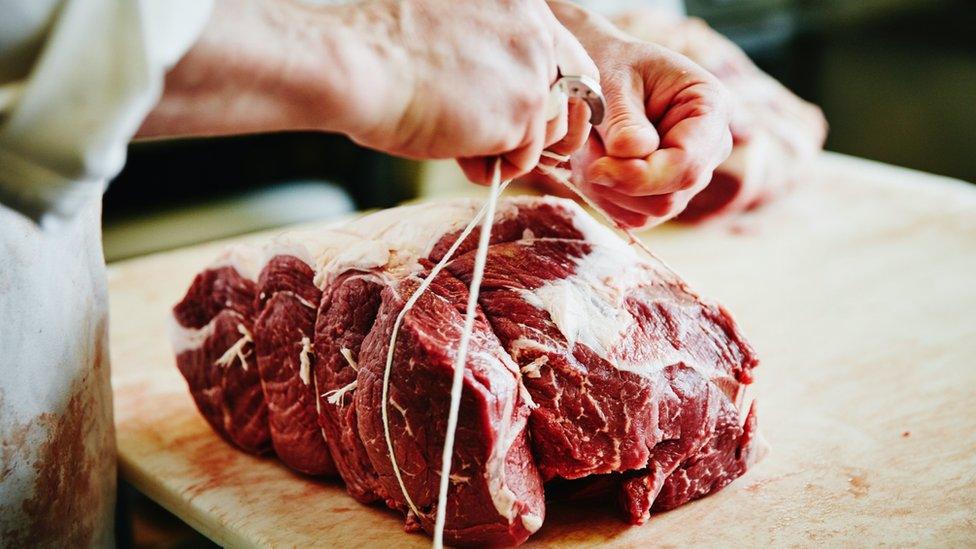
- Published20 September 2021
